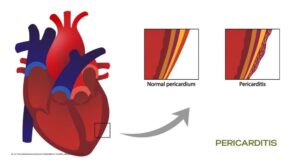Possible Signs of Infertility: What Your Body Might Be Telling You

Infertility is a deeply personal journey, but one that affects millions across the globe. According to the World Health Organization (WHO), around 1 in 6 couples worldwide experience difficulties conceiving. In today’s fast-paced world, understanding the subtle — and sometimes not-so-subtle — signs of infertility is the first step toward seeking timely medical support.
Whether you’re planning a family or simply becoming aware of your reproductive health, knowing these signs can empower you.
Irregular Menstrual Cycles
A typical menstrual cycle lasts between 28 to 35 days. If your cycles are consistently irregular, excessively long, short, or absent altogether, it could indicate:
Ovulatory disorders
Polycystic Ovary Syndrome (PCOS)
Hormonal imbalances
Science says: Studies show that ovulation problems account for 25-30% of infertility cases in women (American Society for Reproductive Medicine, 2022).
Painful Periods or Pelvic Pain
While some discomfort is normal, severe menstrual cramps, chronic pelvic pain, or pain during intercourse might point to:
Endometriosis
Pelvic Inflammatory Disease (PID)
Uterine fibroids
Such conditions can affect reproductive organs, making conception difficult.
No Periods or Very Light Bleeding
Amenorrhea (absence of menstruation) or unusually light periods can signal:
Hormonal deficiencies
Premature Ovarian Insufficiency (POI)
Stress or excessive weight loss
Addressing these early may improve fertility outcomes.
Signs of Hormonal Imbalance
Look out for:
Unexplained weight gain
Acne breakouts
Excess facial or body hair (Hirsutism)
Hair thinning or loss
These can be red flags for PCOS, thyroid dysfunction, or other conditions affecting fertility.
Male Fertility Red Flags
Infertility isn’t just a female issue. Male factors contribute to about 40-50% of infertility cases. Watch for:
Low libido or sexual dysfunction
Pain or swelling in the testicular area
Noticeably small or firm testicles
Semen analysis often provides early insights into male fertility health.
Difficulty Conceiving After 12 Months
If you’ve been trying to conceive for 12 months (or 6 months if you’re over 35) without success, it’s medically considered infertility. Consulting a specialist at this stage is crucial.
Why Early Awareness Matters
Many causes of infertility are treatable — early detection improves chances
Fertility declines with age, particularly after 35 for women
Modern treatments like IVF, IUI, and hormonal therapies can help if addressed promptly
Your Fertility, Your Health
Infertility is not a life sentence — it’s a medical condition, often with solutions. Listen to your body, stay informed, and don’t hesitate to seek professional guidance.
Remember: You are not alone, and seeking help is a sign of strength, not weakness.
Stay tuned to nellikka.life for trusted, doctor-reviewed reproductive health information.
Trusted Medical References:
1. World Health Organization (WHO) – Infertility Facts
2. American Society for Reproductive Medicine (ASRM) – Causes and Signs of Infertility
3. Centers for Disease Control and Prevention (CDC) – Reproductive Health: Infertility
4. Mayo Clinic – Infertility: Symptoms and Causes
5.NHS UK – Infertility Overview
6. PubMed – Review Article on Female Infertility
7. Cleveland Clinic – Infertility Signs and Treatments




